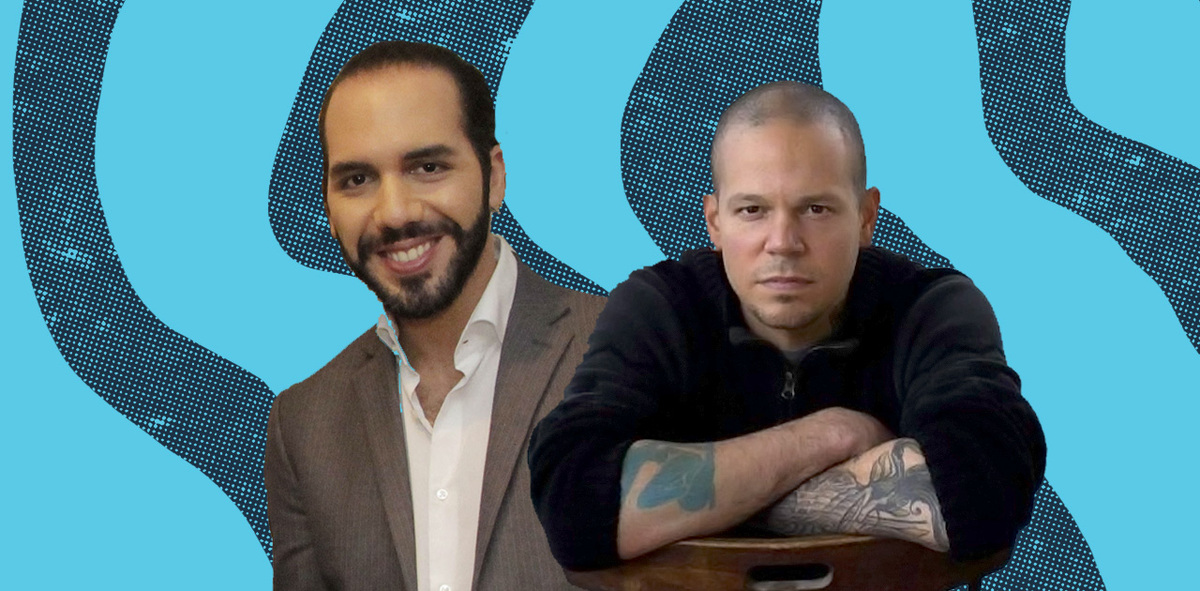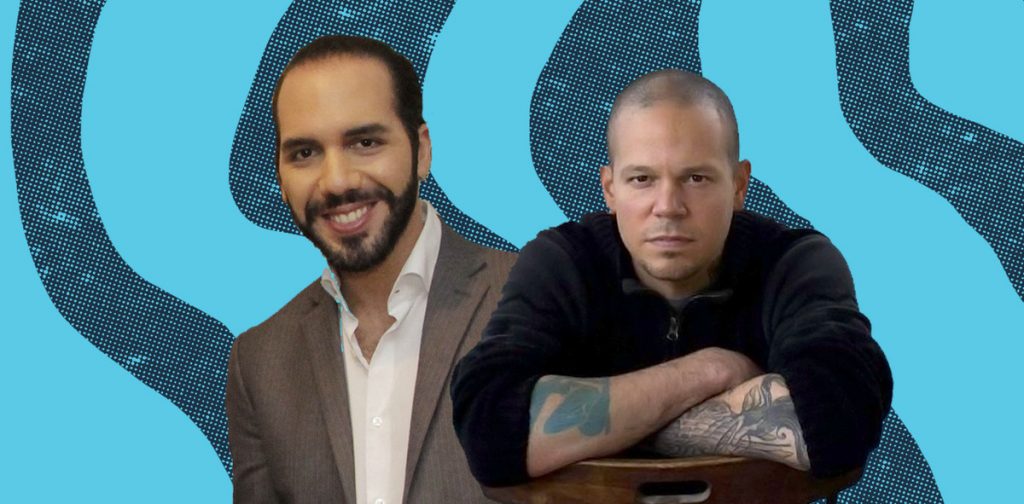ICYMI, on Tuesday René Pérez Joglar aka Residente was live on Instagram talking with El Salvadoran president Nayib Bukele for more than an hour. It wasn’t Residente’s first time employing his fame to access a high-profile politician: Remember early in 2019, when he and Bad Bunny stormed the gates of the Governor’s Mansion in Puerto Rico?
That effort resulted in an in-person, one-on-one convo with then-Governor Ricardo Rosselló (who later resigned, because #Rickyrenuncia). Topics discussed were conveyed by the interviewees, though—the interview itself was not released to the public.
In this episode of #ResidentePregunta (yes, we made this up), the convo appears prescheduled; Bukele is a willing subject in the discussion, which was in part guided by questions sent to Pérez during the interview—including one from Bad Bunny, apparently. The live amassed more than 150K viewers.
A leading topic, of course, was Bukele and his administration’s response to the Covid-19 pandemic. The entirety of El Savlador is currently under quarantine, save for public servants, doctors, journalists, food distributors and others in industries deemed essential. (Military and police are also exempt from quarantine.)
While the chat was probably scheduled, many of the questions Pérez asked did seem improvised. Bukele’s response to two, in particular, were instantaneously condemned by the internet.
This is, approximately, when Bad Bunny comes in: “Rene, ask him what I told you,” he writes. “It’s very important.”
There’s no concrete evidence as to what subject Benito wanted Pérez to broach. Because of the timing, though, the internet speculates it’s related to El Salvador’s LGBTQIA+ community.
Wrapped in an inquiry about how Bukele is protecting this population, Pérez asked Bukele for his thoughts on gay marriage: He is against any and all discrimination, but no, he does not support it.
Marriage is, by definition, meant for “a man and a woman,” according to Bukele. He notes, however, that he’s in favor of other rights—social security, hospital visitation—for same-sex partners. Right now, El Salvador does not guarantee those rights by law.
Then, Bukele—on his own accord—brings up the use of gender-neutral Spanish. Despite acknowledging the inherent machismo of the language, “todes” is not a word you’ll probably ever see him use. From Bukele’s perspective, no positive change can be affected by adjusting the Spanish language for inclusivity.
“A letter wouldn’t have [prevented] Alexa’s murder,” Bukele says, referring to the widely reported killing of a 28-year-old transgender woman in Puerto Rico last month.
Residente rebukes: “Every detail, every letter counts.”
In so few words, Pérez conveys the connection between how language can affect attitudes and perspectives, and also recognizes the historical pliability of all languages in response to sociological factors. Bukele, it seems, denies all that.
“Instead of wasting that time and resources in putting a different letter on words, maybe that time would be better used to persecute those criminals,” Bukele returns.
His opinion on abortion—which he’s adamantly against, even in cases of rape—is rooted in a similar line of thought. “I wouldn’t kill someone, especially someone defenseless, because of what their parents have done,” he says. Fetuses are part of the “most vulnerable,” along with children, people in poverty, the LGBTQI community, and the elderly, which he seeks to protect.
“I think, in the end, in the future, we’re going to realize that [abortion] is a great genocide that we’ve committed,” Bukele says.
The interview between Rene Pérez and El Salvadoran President Nayib Bukele has been translated from Spanish to English. The acronym “LGBTQI,” rather than LGBTQIA+, is used here to reflect the subject’s actual usage.




